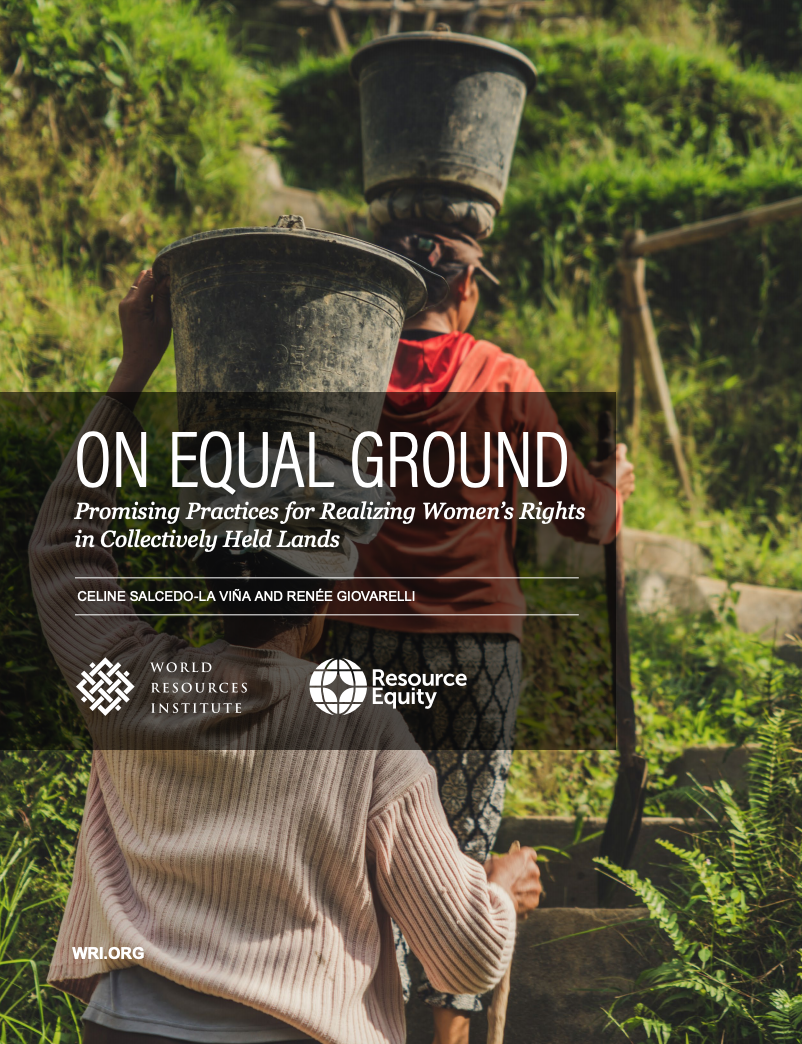The 2030 Agenda for Sustainable Development recognizes equal and secure land rights for women as integral to attaining the global goals of ending poverty and hunger and realizing a more gender-equitable world. To achieve these goals, policies and investments to secure women’s land rights must target not only their individual rights (or jointly with spouses) to household land but also their group-based rights in collectively held lands and resources, such as forests and rangelands.
This report seeks to advance women’s tenure rights in collectively held lands by documenting promising practices and approaches gleaned from communities where women have recognized and secure rights. World Resources Institute (WRI) partnered with Resource Equity and organizations in five countries to identify and conduct case studies of five communities that have relatively gender-equitable land tenure systems.
